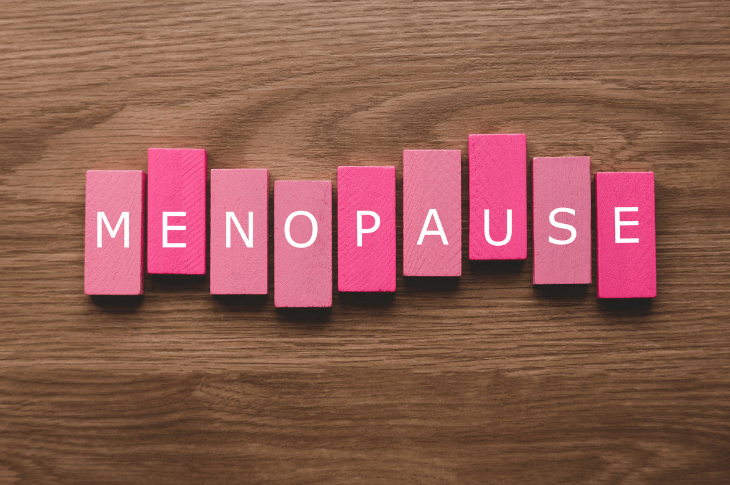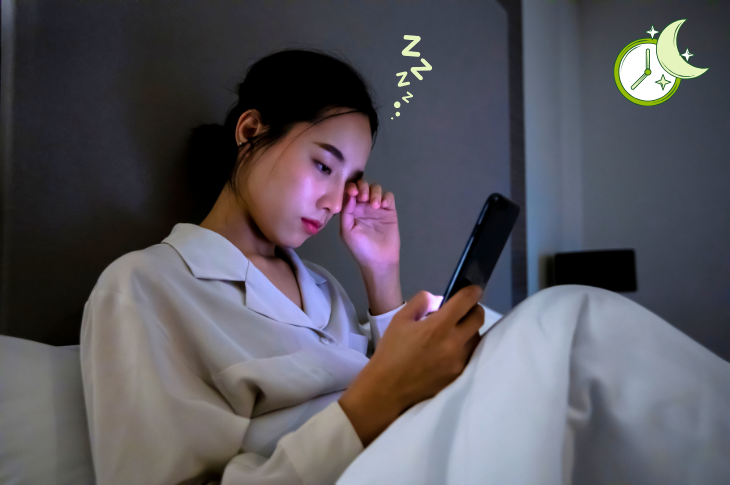
Menopause occurs when a person stops menstruating and can no longer naturally conceive a child. It can be difficult to live with and the symptoms can last for over a decade in some cases. Understanding the toll that menopause can take on the body and the ways that people can show support helps eliminate the stigma and misconceptions that are often associated with it.
What is menopause?
When the menstrual cycle stops for 12 months and the body produces lower levels of oestrogen, menopause begins. Monthly periods may stop suddenly or slowly decrease in frequency over time. The time leading up to menopause when the menstrual cycle begins to change and menopausal symptoms start is known as perimenopause.
Menopause occurs as part of the natural aging process due to a decrease in oestrogen levels. According to the NHS, the average age in the UK for reaching menopause is 51, with a wider average age bracket of 45 to 55. The NHS also states that “1 in 100 women” reach menopause before the age of 40, which is referred to as premature menopause.
Menopause causes, symptoms, and treatments
While menopause impacts a large portion of the population, the symptoms and suitable treatment options associated with it can differ from person to person. Depending on when and how menopause begins, the cause can also differ.
Causes
The cause of menopause is a change in natural sex hormone levels. The body stops releasing an egg on a monthly basis and the levels of oestrogen production drop. This is a completely natural part of the ageing process.
When early menopause or premature menopause occurs, it can be difficult to determine the exact cause. This is because it can be due to a number of factors, including underlying conditions, ovarian surgery, and even some cancer treatments such as chemotherapy.
Symptoms
One of the first signs of perimenopause is changes to the menstrual cycle, including abnormally light or heavy periods, and changes in their frequency. Eventually the periods will stop entirely and menopause will begin. Those experiencing perimenopause may also begin to experience some common menopausal symptoms.
According to the NHS, the symptoms of menopause can include:
- Hot flushes
- Disturbed sleep
- This can lead to irritability
- Headaches
- Night sweats
- Changes in mood
- Low mood
- Anxiety
- A reduced libido
- Vaginal dryness
- This can cause discomfort during sex
- Heart palpitations
- Stiff joints
- A reduction in muscle mass
- Recurring UTIs
- Issues with cognitive abilities, such memory and concentration
- An increased risk of developing osteoporosis
Treatments
The treatment options for menopause depend on the severity of the symptoms, but common treatments include:
- Hormone Replacement Therapy (HRT) - This type of treatment comes in many forms, including patches, tablets, and implants. It replenishes the diminishing levels of oestrogen which can relieve most menopausal symptoms.
- Cognitive Behavioural Therapy (CBT) - This is talking therapy that can help people cope with the mood changes and increased anxiety that commonly occur during menopause.
- Vaginal oestrogen topical treatments such as creams and lubricants help with vaginal dryness.
- A healthy diet and exercise regimen can help with some of the most common menopause symptoms.
- Vitamin D supplements may be useful for those who suffer with osteoporosis or weak bones as a result of menopause.
What is surgical menopause?
Surgical menopause occurs when the ovaries have been surgically removed. The ovaries act as the main oestrogen producers within the body, so their removal immediately induces menopause. It’s common for those going through surgical menopause to experience more severe symptoms than those going through natural menopause.
Misconceptions and stigma around menopause
Many people believe that menopause is a short-lived event that each person experiences in the same way. This is false, as menopausal symptoms often last for around 4 years, and can last over a decade in some cases. In fact, the NHS states that around “1 in 10 women” who reach menopause experience symptoms for up to 12 years. The severity of menopausal symptoms can also vary, and those who experience it more suddenly rather than gradually tend to experience more severe symptoms.
Another key misconception about menopause is who experiences it. While menopause is most commonly associated with women, it can also impact non-binary people, transgender men, and intersex people. It’s important to acknowledge these communities within the wider conversation about menopause to help erase the stigma and promote inclusivity.
Raising awareness of menopause
Raising awareness of menopause, including who it impacts and the severity and longevity of the symptoms, can help garner much needed support and understanding for those suffering with it. As of 2009, October was deemed World Menopause Awareness Month by the International Menopause Society (IMS) in conjunction with the World Health Organisation (WHO). The aim is to raise awareness of menopause as well as the support options available that can help improve wellbeing.
World Menopause Day occurs on 18th October, and each year has its own unique theme. For example, the theme for 2021 was bone health, due to the increased risk of osteoporosis and weak bones that those going through menopause face.
To show support for this cause, people can share social media posts about menopause and continue the conversation about its symptoms and treatment options. Some people going through menopause feel that it can be swept under the rug and isn’t fully acknowledged, so developing a deeper understanding and spreading useful information is key. As with any worthy cause, donating to or raising funds for reputable menopause charities, like The Menopause Charity, is also a useful way for people to show their support.

Menopause support groups
Due to the fact that menopause is so widespread and impacts a large portion of the global population, there are countless support groups that people can join. These are available on a local, regional, national, and international scale. Support groups offer first-hand advice and support from people going through menopause, as well as healthcare professionals in some cases.
Menopause Matters offers a forum with various different discussion topics, including alternative therapies and post-menopause. MumsNet also offers a menopause forum where people can ask for help and provide advice about various menopause related topics.
Social media is another easy way to find menopause support groups with lots of members sharing their experiences and advice. For example, Healthy Menopause is a Facebook group with over 3,000 members which is dedicated to supporting people throughout their experience with menopause.










